Alabaster.
19th century.
This alabaster sculpture takes up the subject of the eleventh work entrusted to Hercules by Eurystheus. Eurystheus had asked the mythological hero to bring back the golden apples from the Hesperides garden, guarded by Ladon, a hundred-headed dragon. Hercules asks the Titan Atlas to help him in this task, the latter agrees to go and get the apples on condition that Hercules agrees to carry the vault of heaven in his place. When the Titan returns with the three apples, he refuses to take back his burden, but Hercules traps him, takes the apples and continues his quest.
The mythical hero is recognizable by the lion's skin surrounding him, that of the lion of Nemaeus that he was charged with killing for his first job.
Our alabaster sculpture thus represents the moment when Hercules is bent under the weight of the world, in the manner of an Atlantean, but it is surmounted by a vase that presents a frieze with a sculpted ribbon. The face of the hero is finely worked, his fingers are delicately placed on the base of the vase that he maintains despite the weight that bends him and pushes his feet into the ground.


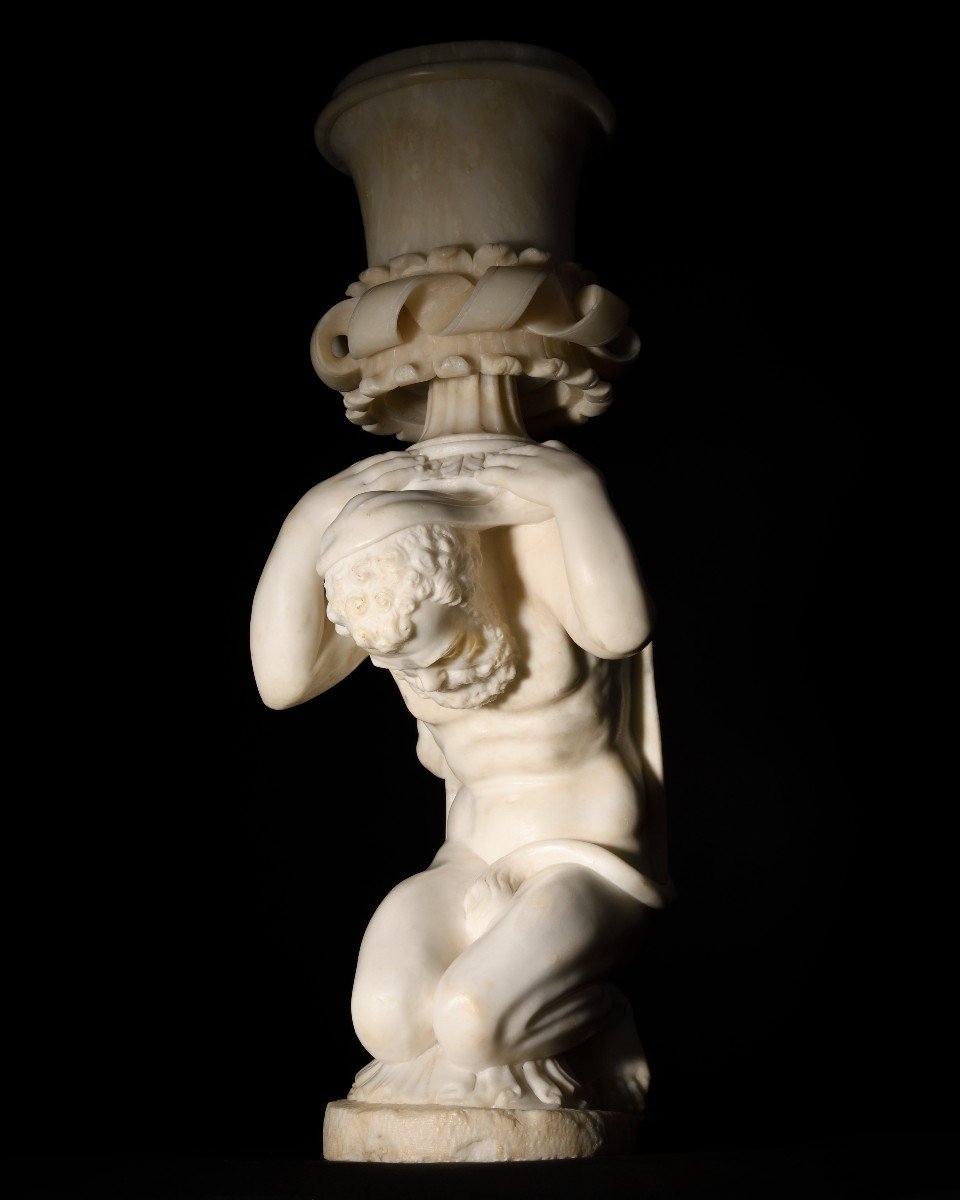


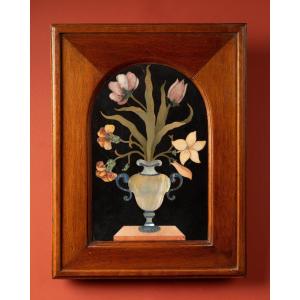

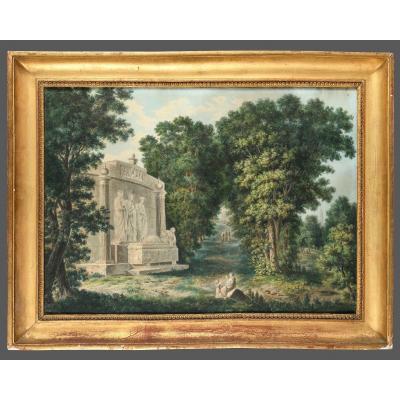
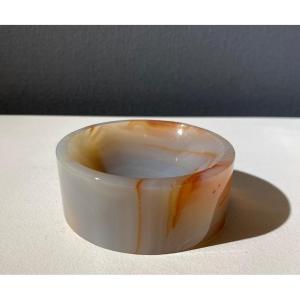
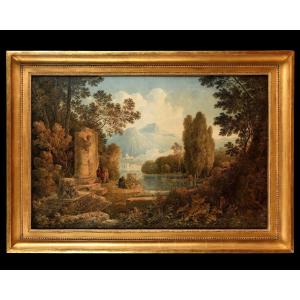
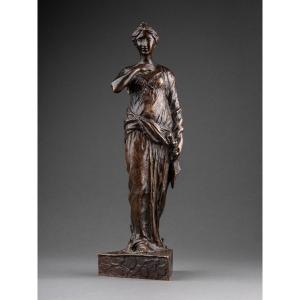
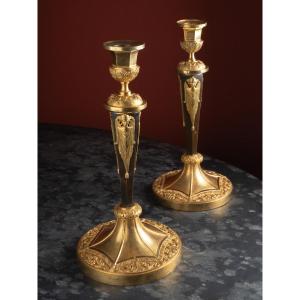
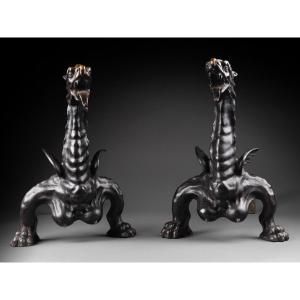



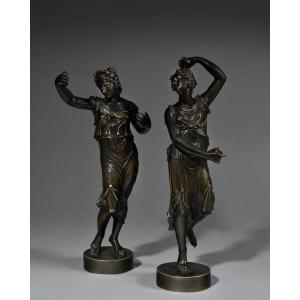
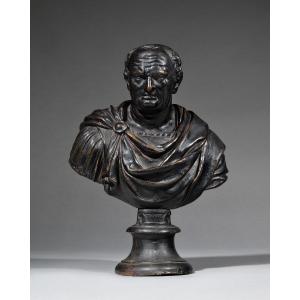
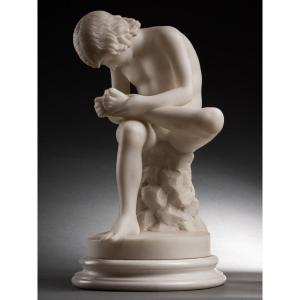


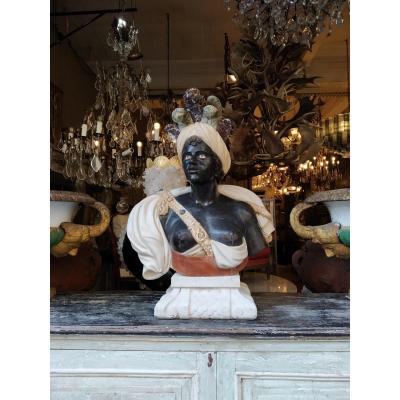

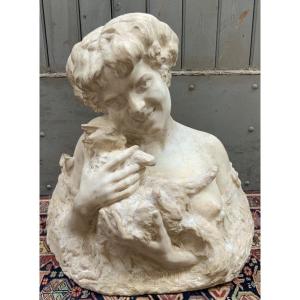




 Le Magazine de PROANTIC
Le Magazine de PROANTIC TRÉSORS Magazine
TRÉSORS Magazine Rivista Artiquariato
Rivista Artiquariato